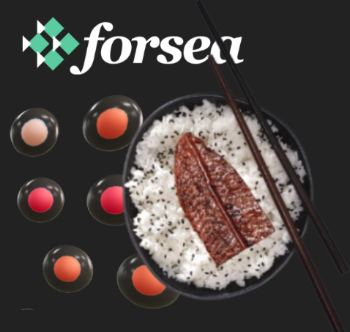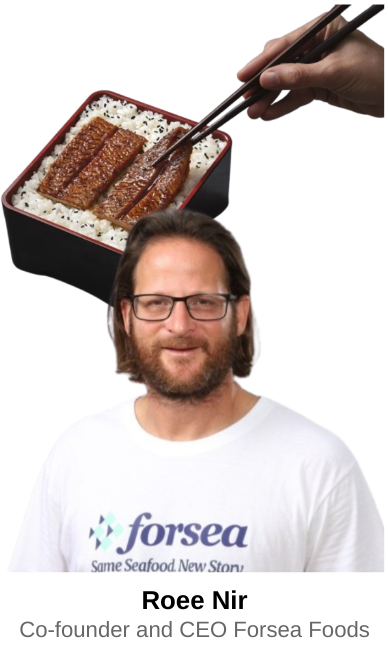|

Forsea Foods developed a unique patented platform technology that enables cells to differentiate and grow autonomously
Israeli Startup Forsea Foods Achieves Breakthrough in Affordable Cultivated Seafood
 ISRAEL
ISRAEL
Thursday, November 14, 2024, 00:10 (GMT + 9)
Israeli startup Forsea Foods has announced a major breakthrough in cell density for cultivated seafood, achieving levels over 300 million cells per ml.
This advancement not only reduces production costs but could make its lab-grown eel meat more affordable than conventional eel, a significant step in the cultivated seafood industry. As the company gears up to launch its cultivated eel in Japan by 2026, this development is particularly impactful given the market's demand and the high prices of traditional eel meat, which ranges from $40 to $60 per kilogram. Japan consumes over 70% of the world’s eel, a species that faces critical endangerment due to poaching, pollution, and breeding challenges.

Photo; courtesy Forsea Seafoods
Forsea’s organoid technology, a method that allows cells to form 3D microtissue structures naturally without using a scaffold, has been central to achieving such high cell densities. This innovation reduces reliance on costly growth factors and bypasses the scaffold stage typical of cultivated meat processes, resulting in a more cost-effective production method. This high-efficiency  approach not only addresses sustainability concerns but also allows for scalable production that could meet future demands in the seafood industry. By developing six distinct cell lines, Forsea aims to expand into other seafood products, potentially helping to alleviate pressure on ecologically sensitive species. approach not only addresses sustainability concerns but also allows for scalable production that could meet future demands in the seafood industry. By developing six distinct cell lines, Forsea aims to expand into other seafood products, potentially helping to alleviate pressure on ecologically sensitive species.
In Japan, where alternative proteins are gaining traction, Forsea Seafoods plans to capitalize on the nation’s interest in sustainable and innovative food options. Public sentiment is increasingly open to cultivated seafood, especially if it is cost-competitive. Japan is also progressing toward a novel food regulatory framework, and Forsea is preparing its regulatory filings to launch commercially by 2026. The company's initial success with its cultivated eel, showcased at a tasting event in Tokyo’s Saido restaurant, garnered positive feedback and demonstrated its product’s potential in a market eager for sustainable alternatives.
According to Forsea’s co-founder and CEO Roee Nir, this advancement validates Forsea’s approach and highlights the potential for lowering production costs across the cultivated seafood sector. Forsea has already raised $5.2 million in seed funding and is preparing for a Series A funding round to support the construction of a pilot plant, a critical step toward commercial scaling. By achieving this cell density milestone, Forsea is well-positioned to pioneer cost-efficient cultivated seafood, setting a model for future efforts in sustainable aquaculture.
[email protected]
www.seafood.media
|



